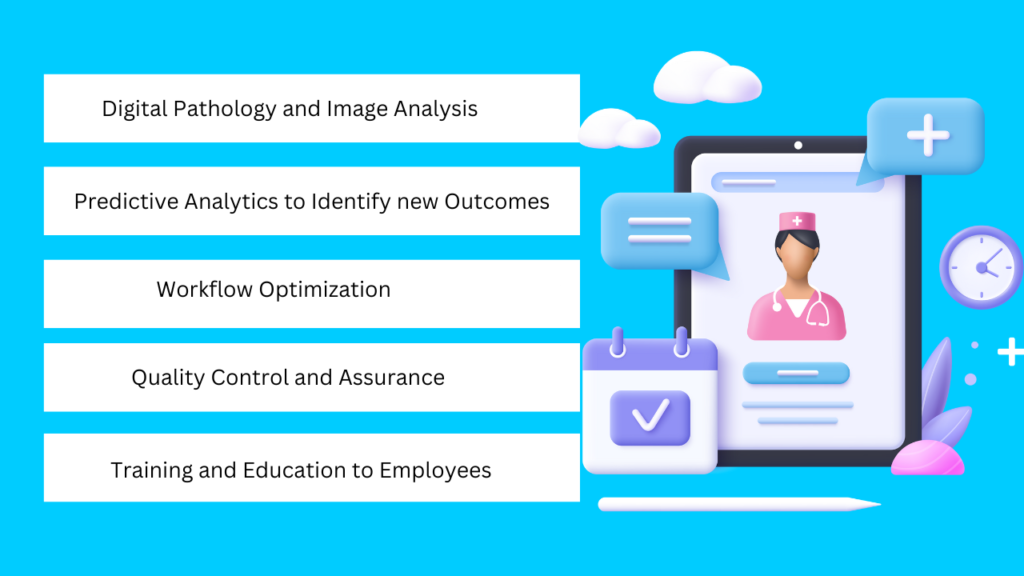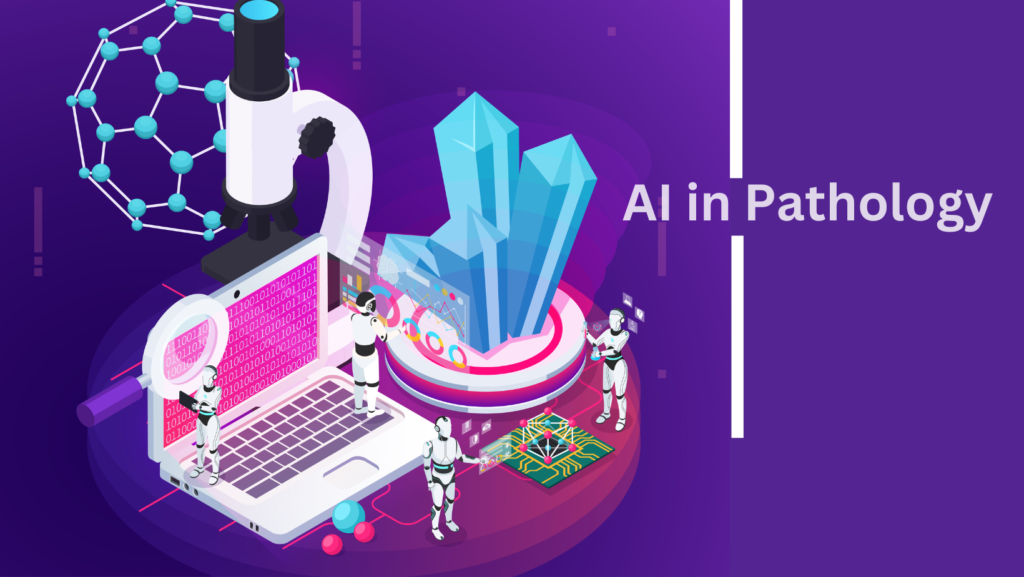The integration of Artificial intelligence has brought significant change to many industries. In the field of Pathology, this AI impact can bring a revolutionary shift in the way diagnostic processes are approached. However, if we look back to the traditional approach of pathology, which primarily relies on the meticulous evaluation of tissue samples by certified professionals.
The role of AI in Pathology can bring change in the analysis of complex data to provide accuracy and speed, which is currently missing in the current approach. The advanced algorithms and human insight not only improve diagnostic accuracy but also speed up the diagnostic process, thereby enhancing patient care.
As AI improves various processes in pathology and becomes increasingly important since it allows a new era of medical diagnostics and together will human knowledge to cooperate to generate unheard-of results.
Use Cases of AI in Pathology

Digital Pathology and Image Analysis
AI is growing and can be very useful for digital pathology, as it is very good at analyzing digital pictures. Artificial intelligence systems help pathologists detect diseases like cancer, infectious diseases, and inflammatory diseases by teaching them to spot patterns and outliers in histological pictures. AI can make diagnosis much more accurate and cut down on the time it takes by automatically looking at huge numbers of pictures. Additionally, AI systems can learn and grow all the time from new data, which signifies that detection skills will always change as medical knowledge grows. This makes the testing methods we already have better and opens the door to finding new pathogenic markers.
Predictive Analytics to Identify New Outcomes
AI can analyze past patient data to identify trends and predict patient outcomes and disease progression based on those trends. In pathology, this can help with tracking disease return, making prognostications, and choosing treatments. For instance, AI systems can guess the chance of cancer metastases based on the results of the first test. This helps make treatment plans more personalized. Predictive analytics can also help with allocating resources by predicting future workloads and making better plans for medical services. This planned approach makes sure that healthcare systems are better prepared to manage patient care.
Workflow Optimization
AI can make pathology processes easier by automating tasks like naming, sorting, and first screens on slides. In another way, this will make things run more smoothly and let doctors focus on tougher cases. AI-driven systems can also organize and analyze data from various sources by giving proper information about the patients. However, leveraging AI tools in lab computer systems can help track and enable real-time reporting, reducing workload and speeding up the diagnosis process.
Quality Control and Assurance
AI can help maintain quality by ensuring consistency in the factors used for image analysis and diagnosis. This lowers the chance of variation and errors in pathology readings. AI in pathology can identify unusual patterns or variances that require a pathologist’s attention to bring accuracy to diagnosis. Moreover, artificial intelligence can monitor and provide immediate feedback, allowing for quick adjustments and corrections.
Training and Education to Employees
Artificial intelligence powered tools can be used to train and teach both workers and students. Virtual microscopy platforms that use AI can make learning more fun and interactive. This will allow students to learn to recognize different diseases that can make people sick and improve their diagnostic skills. Moreover, these tools act out rare and difficult situations, so students are exposed to a wider range of disorders so that they can experience in a normal training setting.
Also Read: How AI in Healthcare Improve Patient Care in 2024?
Challenges of Artificial Intelligence in Pathology
The challenges of AI in pathology can be addressed with proper expertise, Hire Artificial intelligence engineers to help with these challenges by providing expert guidance on implementing and optimizing AI solutions in pathology practices.

